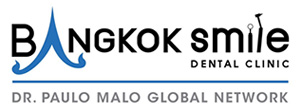What is Bad Breath?
Bad breath is a simple metabolic equation. Almost all cases of bad breath is caused by Volatile Sulfur Compounds (or VSCs) which are produced by a group of ANAEROBIC Bacteria living a in our mouth and throat, as well as in our digestion tract. These bacteria are actually present to assist human digestion by breaking down proteins found in specific foods, mucus or phlegm, blood, and in diseased or “broken-down” oral tissues. Once the coating is staying longer than the bacteria are able to break down the proteins contained in the coatings, under certain conditions, these bacteria starts to break down proteins at an abnormally high rate, which eventually releases the odorous and “lousy-tasting” sulfur compounds - which in fact is - the actual Bad Breath.

Causes of Bad Breath
Poor oral hygiene is the most common cause of bad breath. When you do not brush and floss your teeth on a daily basis, any food trapped between your teeth or in your gums will be broken down by bacteria and eventually causes the bad smell. However, there are also a number of other factors that may cause the condition:
- Oral diseases and infections, especially periodontitis, which has a distinct strong smell. Tooth decay, and abscessed teeth are also responsible for bad breath.
- Mouth wounds or ulcers such as extraction wounds, Syphilis, oral ulcers, or tumor.
- People who wear prostheses or braces and do not maintain good oral hygiene can easily have bad breath.
- Smoking: Cigarette smoke causes an immediate effect on your breath because the chemicals and residue from the smoke remain in your mouth and airways. Smoking also increases your risk of developing gum disease, which is another cause of bad breath. As well as making your breath smell bad, smoking also causes staining, loss of taste, and may as well irritate your gums.
- Asthma or respiratory diseases that result in nasal congestion and mucus can also cause bad breath.
- Dry mouth can cause bad breath. Saliva flow naturally flushes away bacteria and food debris in your oral cavity. When people have dry mouth, more food and bacteria are trapped in your mouth. Food will be broken down by bacteria and causes bad smell.
- Mouth breathing can cause bad breath as it makes your mouth dry.
- Diseases of respiratory tract and gastrointestinal tract such as sinusitis, nasal cavity tumor, tonsillitis, gastroesophageal reflux disease, lung diseases or tuberculosis.
- Some medications like antidepressant drugs, chemotherapy , diabetes, stress and fasting can cause dry mouth which leads to bad breath.
Also, if you have one of the following habits or conditions, you may be at higher risk of having a bad breath/halitosis problem:
- Drinking less than 8 glasses of water a day
- Frequently eat high-protein diet such as dairy products, meat, or nuts
- Usually eat food that contains certain spices such as garlic or onions
- Eat high-sugar or acidic diet
- Consume alcohol
- You are a coffee drinker
- Have dry mouth condition
- Regularly use toothpaste, mouthwash, or similar products that form bubbles
- You are a smoker
- Always stay up late at night
- Under a lot of stress
- Continuously take certain medications
- You are experiencing a hormonal change
- Have medical history of diabetes, kidney problems, or liver diseases
- Have nasal or sinus diseases
- You are suffering from allergy with nasal congestion and mucus
- You are a snorer
- Undergoing a chemotherapy or radiotherapy


